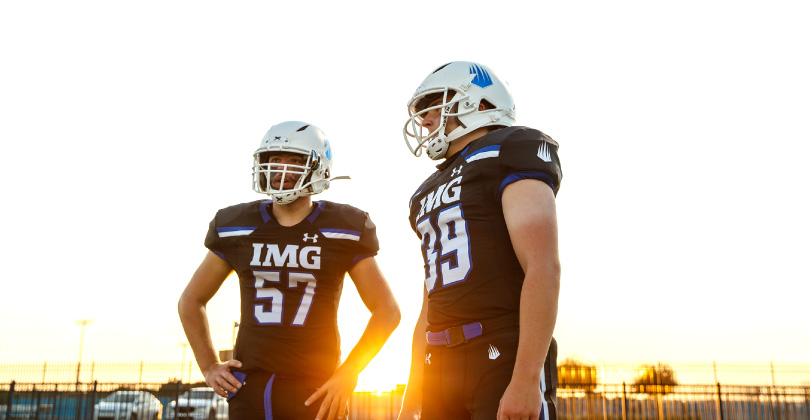Schools use JV to train their rising stars. The next Tom Brady or Brett Favre of the team gets their start in JV. They move to varsity when they’ve proven themselves ready.
If you’ve lived and breathed football all your life, you’ve probably wondered about varsity vs. JV. Which team will I get to play on? What’s better for me? Will one team ensure I get recruited into a good school? Or does how I play matter more? What if I’m a varsity benchwarmer for a season? Will that make me look bad to recruiters? Or will they see that I’m so good I’m the only one who can replace other players?
Below we’ll go over JV vs. varsity and which could be best for you.
What does JV mean in sports?
JV stands for junior varsity. Some schools might call their JV teams freshmen/sophomore teams since freshmen and sophomores usually make up the JV rosters. Generally, JV team members show potential but could use a little extra training. There’s a JV captain who’s a JV player that has some extra responsibilities and regularly talks to coaches. JVs only play in varsity games if there aren’t enough varsity players due to injuries, poor grades, or disqualifications.
Some schools have JV games to give their players some real-game experience. JV games are held either before the varsity or on their own night.
The qualifications to get on the JV team vary by state and high school. But the general rules are that you must have a decent GPA (no failed classes). You must continue to study, do well in class, and hit the gym. Not doing enough athletically or academically is a good way to lose your place on the team.
What is varsity?
So, what is varsity? Varsity teams are usually made up of juniors and seniors. They are the players that win and lose games and take the team to glory. They get the most gameplay and have the skills to lead the team to victory.
Freshmen and sophomores can be on the varsity team, but their skills and gameplay must be on point. Some freshmen and sophomore varsity players are benchwarmers. They sit on the sidelines during varsity games in case they’re needed.
JV VS. VARSITY

Varsity Sports FAQs
Can a freshman be on the varsity team?
Yes, they can be. But more often, freshmen are on the JV team to get their skills up to snuff.
Can you participate in both JV and varsity teams?
While it is possible to play in both JV and varsity games, it’s tougher to practice in both teams.
How do you move up to varsity?
You move up to varsity by doing well in JV. If you’re unsure how you’re doing, ask your JV captain or coach what else you could be doing to improve. Also, keep strength training and conditioning at the gym. Your coaches and captain can tell you which exercises will work best for you.
Do seniors automatically make varsity?
No. But if you work hard and do well on the field, in the gym, and the classroom, you’ll get to play varsity.
Is it better to be a varsity benchwarmer or JV starter?
Being a JV starter could give you the chance to sharpen and hone your skills. If you train well and bring your A-game to practices and JV games, you’ll get to experience both.
But ultimately, the best thing to do is lay out the pros and cons of each and evaluate based on your skill level and academic standing. By conducting this analysis, you’ll get a clearer answer on what’s best for you.
Conclusion
Interested in how to get recruited for college sports? NSCA understands what you’re going through. We’ll help you plan your best route to great colleges. The best way to get started is with a recruiting profile. Create yours today.
